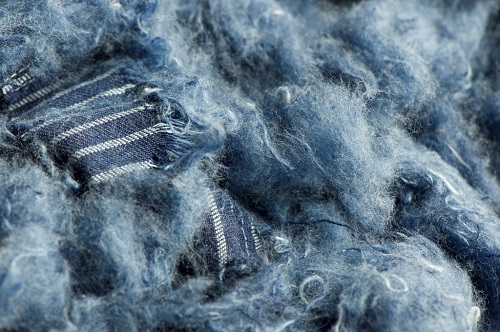Lenzing – Lenzing Group, a global producer of wood-based specialty fibers, introduced the initial phase of the “Fiber Recycling Initiative” by TENCEL alongside its valued mill partners, Artistic Milliners from Pakistan, Canatiba from Brazil and Textil Santanderina from Spain.
Dedicated to driving circularity in the global textile industry, the initiative kicks off with the production of denim fabrics derived from mechanically recycled TENCEL-branded lyocell fibers. With the usage of pre-consumer lyocell waste at a commercial scale, the initiative redefines the circular future of a sustainable denim industry globally.
“Brands and consumers count on us to lead the change towards a more sustainable industry value chain,” said Tuncay Kılıçkan, head of global business development of denim at Lenzing. “As we constantly seek ways to improve circularity across various components of the textile industry, our like-minded, decades-long value chain partners have innovatively discovered the mechanical recycling of TENCEL Lyocell fibers in denim production. While such a concept is still relatively new to the wider industry, the development of the Fiber Recycling Initiative by TENCEL sets out to promote the benefits and unleash the full potential of the new circular fabric.”
The initial phase of the initiative spotlights the quest for sustainable denim production and innovation from Lenzing and its mill partners as they answer a call for sustainability, circularity and transparency in the global textile value chain. This is driven by growing demand from consumers who are looking for more sustainable and circular product options.
Virgin TENCEL Lyocell fibers are reputable for their environmentally responsible, closed-loop production process, which transforms sustainably sourced wood pulp into cellulosic fibers with high resource efficiency and a low carbon footprint. Mechanically recycled TENCEL Lyocell fibers add to the sustainability features of the denim fabric, as it does not require the usage of water or chemicals.
Fabrics produced using mechanically recycled TENCEL Lyocell fibers feature a “close-to-cotton” aesthetics while retaining the core features of TENCEL Lyocell fibers, like breathability, smooth drape, gentle on the skin and long-lasting comfort.
The fibers are identifiable in end products, ensuring traceability and transparency of production processes. With the ability to be traced back to their sources, the use of mechanically recycled TENCEL Lyocell fibers can be documented and verified, ensuring greater accountability and transparency in the supply chain








